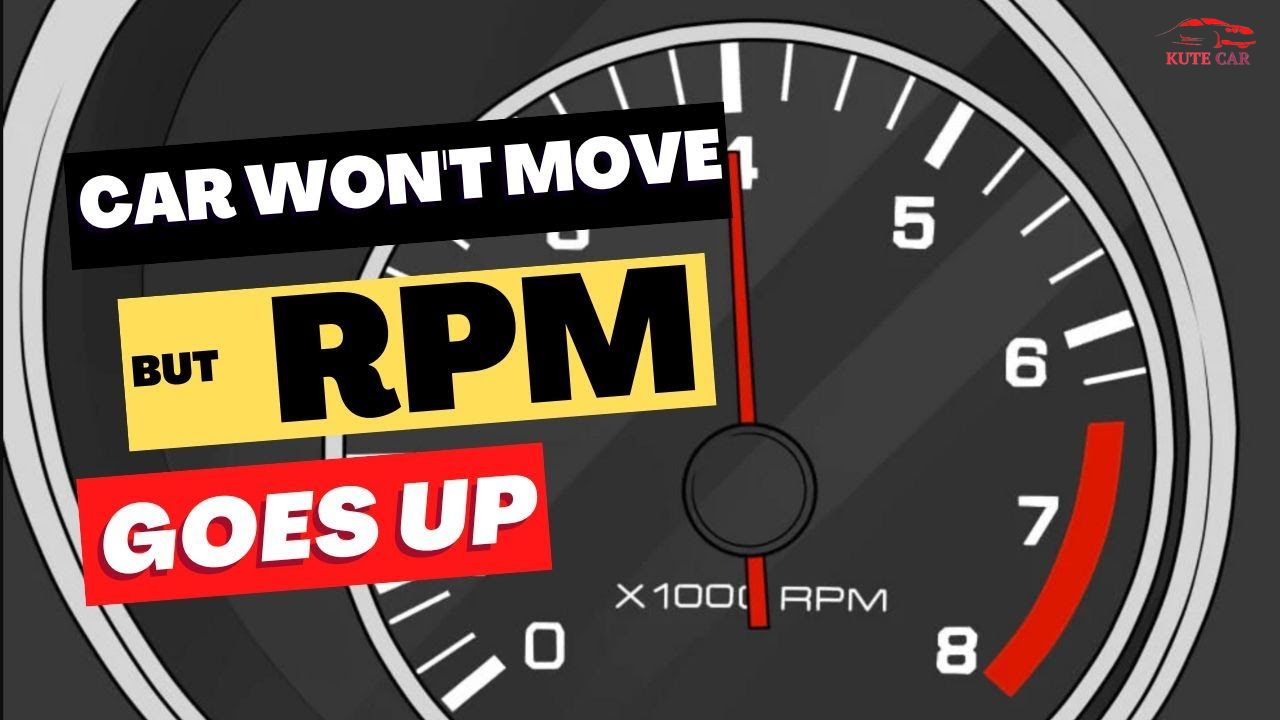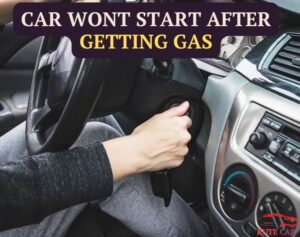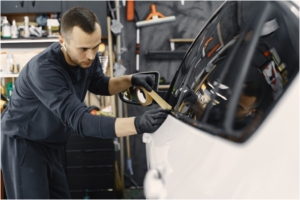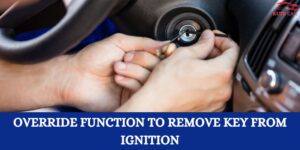If you are facing a problem where your car won’t accelerate but rpms go up and down, then the right place to get the exact solution for this issue. This problem makes drivers extraordinarily frustrated and exhausted while driving on the highway. This issue can be hazardous for drivers and other vehicles while going. In this article, we discuss what RPM is, what clauses of this severe issue are and its solutions.
The Importance of Understanding RPM for Safe and Efficient Driving
In simple language, RPM means revolution per minute, which measures how many times the engine crankshaft turns in one minute. It also tells how fast the engine is moving at that particular time. It is essential because it affects the car gears. Every gear has a different engine speed and wheel speed.
It works as the ratios of the higher gears are lower, which means that the engine speed is lower than the speed of the wheels, which is why, in heavier loads, your car can speed up. Lastly, it affects your car’s fuel economy.
Top 10 Reasons why your Car Won’t Accelerate But RPMS go up
There are several reasons why your car RPMs go up but no acceleration. It may conclude problems like the fuel system, the ignition system, a mechanical issue, transmission problems, and lousy Clutch.
1) Fuel System
The engine can be running erratic or shutting down completely when it is not getting the right amount of fuel. It depends on the fuel filter because it passes clean energy to the engine. This filter helps to trap gunk, dirt, or any other type of sediment particles. A car can’t accelerate if it does not get enough fuel. If you have this problem, you should clean the fuel filter first.
2) Ignition System Problem
That’s because of a malfunction with the ignition system. The spark plug or the wire may be damaged, so it is ineffective in igniting the vehicle’s fuel. According to your car, the ignition system might be as much as $35 to more than $300. The cost of labor will be around $100.
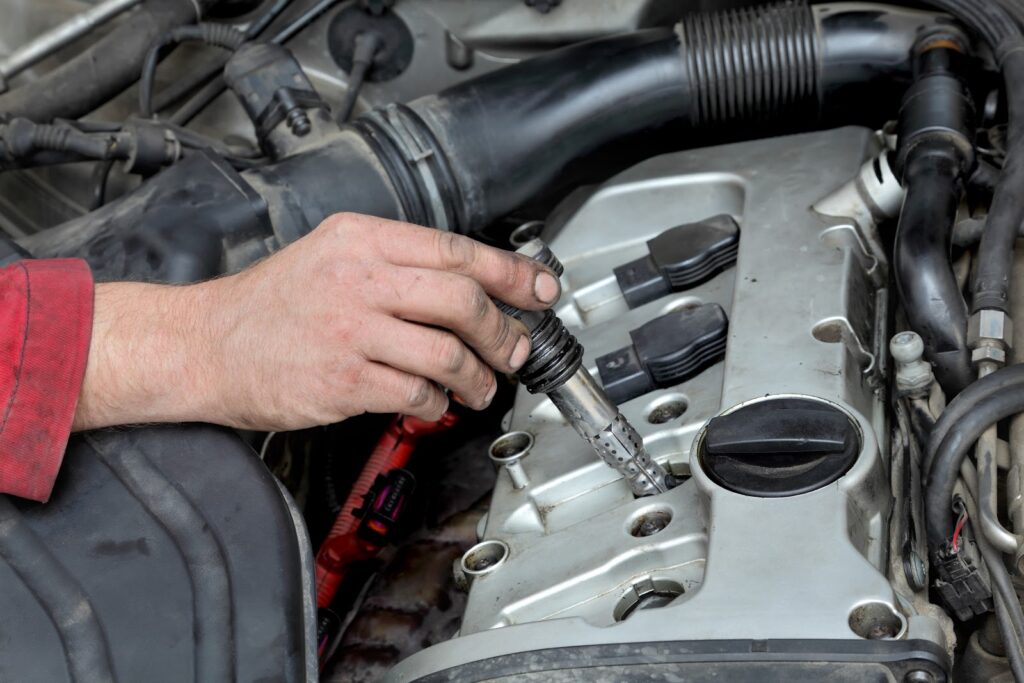
3) Bad Clutch
Another reason may be your clutch disc has worn out. Typically manual vehicles have clutch plates. If your Clutch is faulty, it may raise rpm but not accelerate your vehicle. If your Clutch is damaged, it may slip off and lose grip on the car flywheel. This issue happens because of high speeds and high acceleration. The only solution is to change the lousy Clutch and bring a new clutch with the mechanic.
4) Engine Control Module or Failed Sensor
It’s a rare case that your engine control module may fail. In modern vehicles, an onboard computer called an ECM receives all this information and sensors it, which may sometimes forget or get the wrong information. To solve this problem, use a diagnostic scanner, check the wiring harness, and test the sensor. If any of this is found, then replace or retest your vehicle.
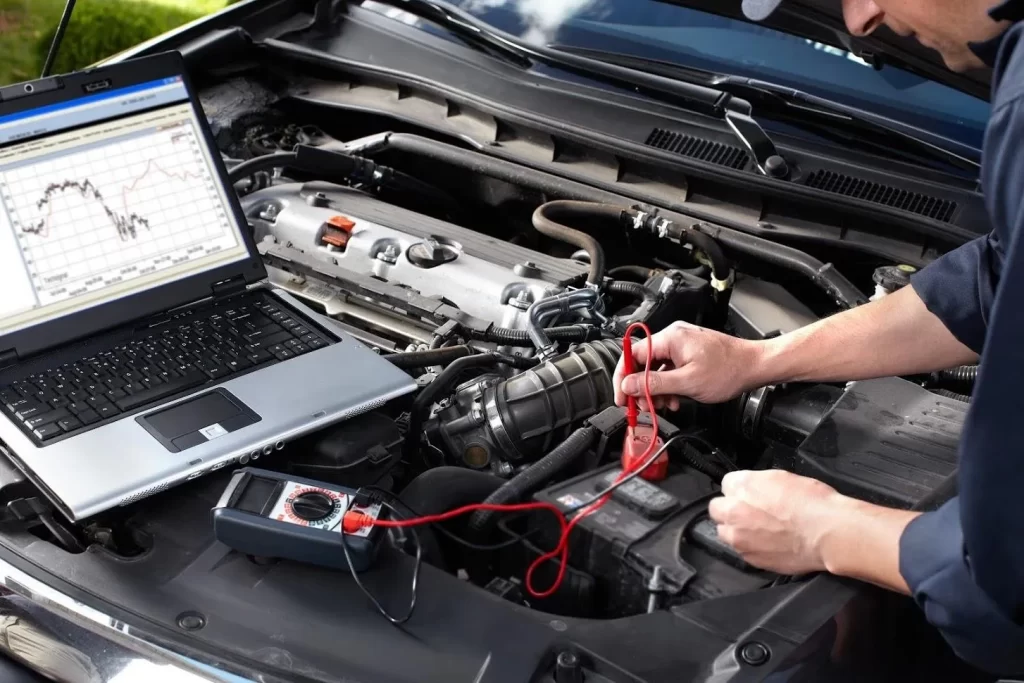
5) Transmission Problem
Another reason may be that your gears are not shifting correctly; it will cause the car to hesitate or stall. Several causes include low transmission fluid, worn-out gears, or a faulty shift solenoid. You have always checked your warning lights; if there is any related issue, the engine light illuminates. This problem can be repaired with minor repairs or adjustments.
6) Leak in Your Intake manifold
Sometimes there is a leak in your air supply, which provides air to your engine. It will cause your engine to run lean and stall. If you apply grease to your 0 rings, then it may prevent it. The oil will be low-pressure and very thick. If your problem still needs to be solved, then go to a professional mechanic and have them diagnose and repair it.
7) Catalytic Converter Problem
Another reason may be that your catalytic Converter doesn’t work, which causes it to produce more heat and stall. This Converter usually filters harmful engine exhaust pollutants from your vehicle. This problem can cause clogged converters, an oxygen sensor problem, or a faulty ignition system. You need to diagnose your car with a professional mechanic to solve this problem. If you want to change this Converter, it will cost you $950 and $2500, including labor and parts.
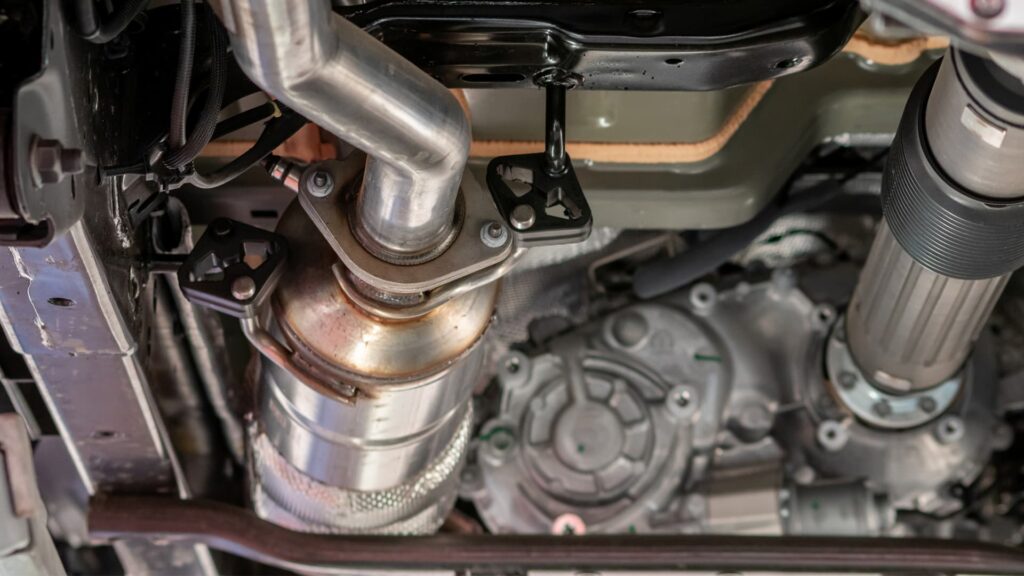
8) Bad Torque Converter
This Converter helps transform the mechanical power from the engine to hydraulic power needed for the drivetrain. This issue can also cause your RPM to rise but not accelerate. This issue is noticeable to the driver, such as shuddering, slipping, lag, or vibrating. If your car is having this difficulty, your torque converter is failing.
9) Drivetrain Problems
If your issue still needs to be addressed, it may be related to the drivetrain. This issue generates because of some form of vibration or shaking before leading to trouble moving the vehicle. It may also make clunking or grinding noises. A guide that will help you resolve this problem.
10) Bad Shift Solenoids
This shift controls the flow of fluid in the transmission. It transfers single to Solenoids when the fluid passes. You can check this when the engine light is on. You will feel erratic shifting, slipping or the inability to gain RPMs. You can check the user manual provided by the company, which contains ten essential steps to solve the issue of Solenoids shift.
Conclusion
If your car won’t pick up speed despite high RPMs, then there are many reasons which we discuss in this article with the solutions. This problem can be very frustrating and cause some danger to drivers. The most common cause is a bad fuel pump, clogged fuel filter, faulty mass airflow sensor, or dirty throttle body. It can also have issues with fluid if it’s cloudy or needs to be changed.
FAQ Regarding The Car Won’t Accelerate But RPMS Go Up
Q.1) Can a clogged fuel filter cause high RPMs but no acceleration?
Yes, a clogged fuel filter can cause car RPMs spike but no acceleration because it restricts the fuel flowing to the engine and can’t generate enough power to move the car forward, even if the RPMs are increasing.
Q.2) What are some common reasons a car won’t accelerate despite high RPMs?
Some common reasons include a slipping clutch, a malfunctioning throttle position sensor, a faulty transmission, a clogged fuel filter, or a problem with the catalytic converter.
Q.3) How do you diagnose a car that won’t accelerate despite high RPMs?
To diagnose a car that won’t accelerate despite high RPMs, you may need to run a series of tests and inspections, such as checking the transmission fluid level, testing the throttle position sensor, inspecting the fuel system, and examining the catalytic converter.
Q.4) Can a faulty transmission cause high RPMs but no acceleration?
Yes, a faulty transmission can cause high RPMs but no acceleration because it may not be able to transfer power from the engine to the wheels effectively.
Q.5) How can I prevent issues with high RPMs but no acceleration?
It’s also essential to address any warning signs, such as strange noises or vibrations, as soon as they arise to avoid potential damage to your car’s components.

